Inaugural Session

M Sivakumar
Chief Executive Officer
ICT Academy
Today’s theme is Augmenting Skills and Accelerating Growth. Augmenting Skills is connecting the skills of individuals in a unit to drastically increase their strength and empower them to perform in a larger realm in an effective as well as efficient manner. Acceleration of growth will happen when we get out of the comfort zone to explore new avenues. But, the timely decision to accelerate and the collective manoeuvre to diligently apply the acceleration plays a crucial role in succeeding in the exercise.
ICT Academy is a profound example of such augmentation of Skills and acceleration of growth. As we are a not-for-profit organization, we do not have a capital. Yet, we have successfully conducted ourselves for the past 10+ years by strategically connecting our skills and by diligently monitoring our progress to make timely decisions for accelerating our progress. To accomplish all this it is not only money that is the input but also an equal share of passion.
Chief Guest Keynote
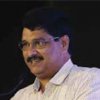
Prof. K Hemachandra Reddy
Chairman
Andhra Pradesh State Council of Higher Education
The Government of Andhra Pradesh has set up a skill development centre, which working very seriously towards skilling the talents available in the state. The honourable Chief Minister of the state has envisioned setting up skill development centres in all the parliamentary constituencies of the state. Each of these centres is to be funded with INR 50, 000, 000 crore and will be rolling out skilling initiatives that are mapped with the industry requirement. The Government has taken this initiative is in addition to bearing the costs of educating the students in the state. Now on, skilling and higher education will be going on a concurrence to ensure that the youth of this state are rightly educated and relevantly skilled.
In such a scenario, there is a concern concerning the attitude of the students today. Seemingly, they are very much casual towards acquiring knowledge. The solution to mend such mentality is to bring back the practices of imparting discipline and instilling sincerity in them.
SESSION ON “LEARNING FOR THE AUGMENTED AGE”

Sharath Babu T
Director - Product Development
Oracle
Here is the SWOT on India’s workforce landscape; the strength of India is that it is one of the largest producers of engineering graduates in the world. However, the point of concern (weakness) is the less employability quotient, which requires the industry to invest in mending. In such a scenario, India stills stand with a higher percentage (65%) of the youth population, which if properly trained can be turned into a dividend. On the contrary, the obvious threat is that we lag in research. In spite of having produced renowned scientists in the past, India is in a dearth of newer researches happening.
For a fair turnout of productivity, first of all, the latest education trends should be democratized, which means taking the latest training modules beyond the confines of the niche higher education institutions. Then I would lay thrust upon providing a balanced education that imparts the employability skills in students; this practice will bloom into creating deployable talents that kick-start as they flow into the industry. Further, from the industry perspective, the cost of training could be saved. Thirdly, it is a challenge cum goal for academia in terms of delivering quality education. Academia should be constantly working to align itself with the changing industry trend to produce industry-relevant talents.
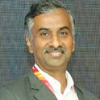
Dr. Kumar Visvanathan
Head – People Shared Services
Mindtree
Success is science; it is not art. Anything that has a clear step by step procedure that is repeatable is considered to be scientific. Additionally, success is a mathematical formula, which is a combination of skills or talent, daily improvisation and time. While skill can be acquired, talent is an inherent trait; irrespective of one possessing skills or inherent talent, it is essential that one improvises it to stay productive or be successful. We human beings have the ability to acquire as many skills as possible; the gap that dwells with us today could be eliminated in future if we have the attitude to learn.
Given all those facts, here is one more detail; only 15% of the core competency of any individual helps in becoming financially successful. The balance 85% is the most crucial factor, which is called human engineering skills; it comprises all the abilities like the ability to communicate, influence, leadership etc. of a person. Hence, it is extremely important that we pay more attention to nurturing it to be successful.
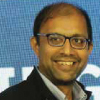
Pundi Sriram
Business Head
STEP - The Hindu Group
The world is changing with the advent of the Big Data, mobility, teacherless training, intelligent assessments and multisensory learning happening around has been presenting a very high degree of personalization. Today, technology is at the table already and everybody goes through the process of learning it.
However, there are skills like complex problem solving, emotional intelligence, coordinating with others, critical thinking, cognitive flexibility, judgement and decision making, creativity, negotiation and people management. Out of all the skills arrayed afore, cognitive flexibility is the most sought after skill in an ever-changing workplace scenario. To develop cognitive flexibility a strong foundation in the English language is imperative.
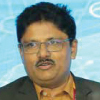
Surya Prakash
Global Head - Talent Transformation and Learning & Development
Wipro
We are living through the fourth industrial revolution, which is a fusion of technology, where the lines between physical, digital and the biological have almost blurred. Many industries and products are going to become obsolete very soon; large organizations are breaking down, as well as the hierarchical structures or melting down. Nearly 50% of the workforce by 2020, the year we are almost close by is expected to have the millennials; some predictions say it will be close to 75%. The workforce would include full-time, part-time, contract employees and employees working for multiple employers concurrently, which will obviously result in the effacing of “employer loyalty”.
Hence, workforce composition is going to be very interesting. With increased life expectancy, seniors will stand a chance to have longer career spans but will face a mid-career crisis. On the other hand, disruptions would be the lookout for niche skills resulting in employee retention becoming a challenge. Another interesting emergence would be that men and machines will be sharing the workplace. Today, power drifts towards those who possess the knowledge to leverage the technology to emerge successfully.
SESSION ON “CULTIVATING THE COMMUNITIES OF TALENT”
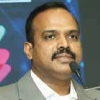
Dr. Jude Xavier
Vice President & Head – HR
Technosoft Global Services
Currently, the industry looks for the in-depth knowledge about the technology in the graduates with an attitude to learn and adaptability etc. The industry has moved on from considering communicative skills as a major parameter to get hired, having in mind that each region has its gap. For instance, graduates from Chennai predominantly don’t lag in communicating; whereas candidates from Coimbatore are strong in the core skills, but lag in communication and soft skills. In Andhra Pradesh, students are weak in technology but possess the right attitude. Hence, skill training should be provided based on the locale’s lacunae and necessity.
To mitigate the technology skill gap, institutions should consider training the students from the pre-final year. Further, students could be trained even after they receive the offers, which should be based on their prospective employer’s need.
PANEL DISCUSSION ON “STRATEGIES TO AUGMENT THE SKILLS REVOLUTION”
Moderator
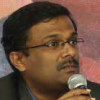
B Anbuthambi
Executive Vice President
ICT Academy
The data projections that present meagre employability percentages actually confine to identify any given samples fitness for some particular job. But, in fact, employability is a vast scale that should consider various parameters of the skill quotient of an individual. At the same time, it should be understood by all the stakeholders that there is a good amount of work required to be done in enhancing the employability quotient of the graduated passing out of the higher education institutions in the country.

Mayank Gupta
Director - Human Capital
Optum Technology
Today digital technology is influencing at least 60-70% of the consumer behaviour. Therefore, IT is at an inflexion point. Most of the IT companies, right from the product companies to startups to services organizations are in a race to acquire the talent of the future. These organizations in the IT domain either hire skills like ML, AI, Mobile Computing from across the globe or they upskill the talent available with them already.
Further, there is a data point which says that by 2022, 40% of the workforce in India will be upskilled thoroughly on digital skills. This is an indicator, which demands us gearing up to meet such transformation by skilling the students with such niche skills at the college level itself. In my two decades of observation, I have inferred that learning any of those aforesaid skills is not enough for anyone to sustain and grow in the industry. There are a whole lot of other skillsets like complex problem solving, critical thinking and socio-emotional intelligence to be able to deliver those technologies flawlessly.

Lakshminarasimhan N
General Manager - Human Resources
Brakes India
The Skill India Report 2019 that presents the comparative employability skills of 2014-19 has stated that the employability of engineers has gone up from 51-59%, along with the progress of other graduates of other degree courses. The good news is that of all the states of India, Andhra Pradesh is at the first position during the years 2016, 2018 and 2019 concerning producing the highest number of employable engineers.
Today, the industry expects the RAT competency, of which ‘R’ stands for relationship. The youth generations today, are predominantly have gone through a childhood of being a single child at home, enjoying every comfort all for them. Such upbringing makes it difficult for them to network with others when they come to the work environment. Secondly, ‘A’ stands for action; candidates who are even proficient in communication are incapable of planning and delivering the results. Thirdly, ‘T’ stands for the thinking skills; working on enhancing all these skills will surely result in graduates getting placed.

Dr. Anand Gurupatham
Deputy General Manager
Renault Nissan Technology & Business Centre
When we talk about accelerating growth through augmenting skills, it is necessary to be aware of the skills that are currently gaining importance. A decade back, emotional intelligence was not on the list of employability skills; similarly, creativity was ranked low, which today is at the top three positions. With the advent of Big Data Analytics, negotiation skill has fallen from the list of skills in demand. In the past five years, almost 35% of the skills that were in demand earlier have become irrelevant.
On the other hand, entry-level jobs are getting automated in the automobile industry too. This situation has created a necessity for humans to compete with the machines. In all, the industry looks for skills like critical thinking, creativity etc. from the fresh engineers. The academic percentages could support only for entry into the industry; whereas the skills they have acquired beyond the graduation would enable them to sustain and grow in the industry.

Arumugam T
Factory HR Head
Kone Elevators
Firstly, honing the communication skills of the students is the responsibility of the ecosystem. Training them to express themselves from a very early age will only make them able communicators as they grow. Secondly, Kone has come up with a novel practice of training the faculty members, which the faculty members considered fruitful in terms of them getting exposed to the latest technologies. Finally, I would like to lay stress upon the fact that higher education institutions need not worry about the placements; if the students are trained with confidence, they will be employable at the end of the day.